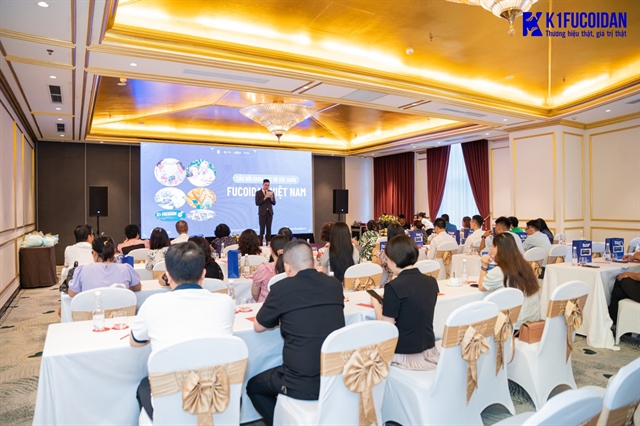 Society
Society


|
| A meeting to introduce the health protection product K1Fucoidan. — VNS Photo |
HÀ NỘI — In order to help the community better understand the role of science in improving health, a group of scientists has been talking about how research led them to develop a new way which may help improve resistance to cancer.
The National Institute for Cancer Control developed a special research project into the preparation of the food supplement, Fucolen.
With positive results, supporting the treatment of cancer patients, that science has been turned into a practical application, a health protection product called K1Fucoidan.
Statistics from the National Institute for Cancer Control, show that as of 2020, the total number of cancer cases in Việt Nam was 353,826, half of them were newly discovered in 2020 and the total number of deaths by that year was 122,960.
Associate Professor Dr. Trần Thị Thanh Hương of the National Institute for Cancer Control said at a recent meeting on science and health that thanks to the research project, scientists had developed a stable and safe formula in terms of volume and ingredients in one Fucoidan hard capsule.
Fucoidan contains brown algae seaweed which has the ability to inhibit the growth, proliferation, metastasis of cancer cells, eliminate excess cell toxins and eliminate inflammatory processes.
Lentinan in shiitake mushrooms provides Beta Glucan, which has a special regulatory effect on the immune system, helping to increase and maintain peak activity of T cells, increasing the activity of natural killer cells.
Fucoidan's ability to strengthen the immune system is effective when combined with shiitake mushrooms, helping to produce more natural immune cells, thereby improving the immune system and supporting the protection of benign cells, preventing external pathogens from attacking the body.
This has had a positive impact, helping patients reduce the risk of complications of infectious diseases from external sources. — VNS